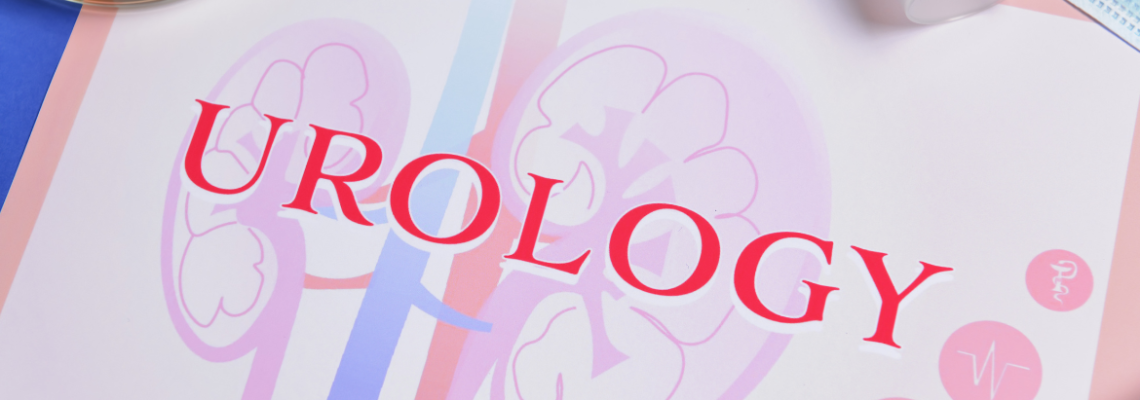
When Should You Consider Consulting a Urologist?
- May 5, 2024
- 0 Likes
- 236 Views
- 0 Comments
As a urologist, I often see patients who are unsure about when they should seek professional help for urinary problems. While some conditions may seem minor and treatable at home, others can be indicative of more serious underlying issues. Here, I’ll discuss some common signs and symptoms that warrant a visit to a urologist.
Med Mark Global, a leading medical tourism company in India, can connect you with some of the country’s top urologists if you’re considering seeking treatment abroad.
Urinary Issues
- Persistent Urinary Tract Infections (UTIs): UTIs are common, especially among women. However, if you experience frequent UTIs (more than two in six months or three in a year), it’s crucial to consult a urologist. Frequent UTIs can indicate underlying problems like bladder stones or anatomical abnormalities.
- Painful Urination: Burning or stinging during urination can be caused by UTIs, bladder infections, or inflammation in the urethra. Early diagnosis and treatment can prevent complications.
- Difficulty Urinating: Difficulty initiating urination, straining to urinate, or incomplete emptying of the bladder are all potential signs of underlying conditions like prostate enlargement in men or pelvic floor dysfunction in women.
- Urinary Incontinence: Loss of bladder control, ranging from occasional leaking to complete incontinence, can significantly impact your quality of life. A urologist can diagnose the cause and recommend treatment options, including behavioral modifications, medications, or surgery.
- Blood in the Urine (Hematuria): Blood in the urine, even if microscopic (detectable only through a urine test), shouldn’t be ignored. It can be caused by UTIs, kidney stones, bladder cancer, or other urological conditions. A urologist will investigate the cause and recommend appropriate treatment.
Male-Specific Issues
- Erectile Dysfunction (ED): Difficulty achieving or maintaining an erection can be caused by various factors, including vascular problems, hormonal imbalances, and psychological issues. A urologist can help identify the cause and recommend treatment options like medications, vacuum devices, implants, or therapy.
- Low Testosterone: Symptoms like decreased libido, fatigue, and erectile dysfunction can indicate low testosterone levels. A urologist can assess your testosterone levels and recommend treatment options like testosterone replacement therapy.
- Testicular Pain or Lump: Pain, swelling, or a lump in the testicles can be a sign of infection, inflammation, or even testicular cancer. Early diagnosis and treatment are crucial for optimal outcomes.
- Prostate Problems: Prostate enlargement is a common occurrence with age. However, if you experience frequent urination, difficulty starting or stopping urination, or blood in the urine, it’s important to see a urologist to rule out prostate cancer.
Female-Specific Issues
- Pelvic Pain: Chronic pelvic pain can significantly impact your quality of life. A urologist can help diagnose the cause, which can range from pelvic floor dysfunction to endometriosis, and recommend treatment options like medications, physical therapy, or surgery.
- Urinary Incontinence: As mentioned earlier, urinary incontinence is a common issue among women. A urologist can diagnose the type of incontinence (stress, urge, or mixed) and recommend treatment options like pelvic floor muscle exercises, medications, or surgery.
- Vaginal Prolapse: Weakening of the pelvic floor muscles can lead to the dropping of pelvic organs, including the bladder or uterus. This can cause urinary incontinence, pelvic pain, or difficulty urinating. A urologist can recommend treatment options like pelvic floor muscle exercises, pessaries (insertable devices to support the pelvic organs), or surgery.
Other Symptoms
- Kidney Stones: Kidney stones can cause excruciating pain in the lower back or abdomen, along with blood in the urine and difficulty urinating. A urologist can diagnose the type and location of the stones and recommend treatment options like medication, shockwave lithotripsy (using sound waves to break down the stones), or surgery.
- Sexually Transmitted Infections (STIs): While some STIs may not cause noticeable symptoms, others can manifest as urinary tract problems, burning during urination, or pelvic pain. A urologist can diagnose STIs and recommend appropriate treatment.
When to See a Urologist Right Away
Certain urological conditions require immediate medical attention. These include:
- Severe pain in the lower back, abdomen, or groin
- Blood in the urine
- Inability to urinate
- Sudden changes in urinary habits
Early Diagnosis and Treatment Are Key
Many urological conditions are treatable, especially when diagnosed early. Ignoring symptoms can lead to complications and potentially more invasive treatments down the line. If you’re experiencing any of the symptoms mentioned above, don’t hesitate to consult a urologist.
